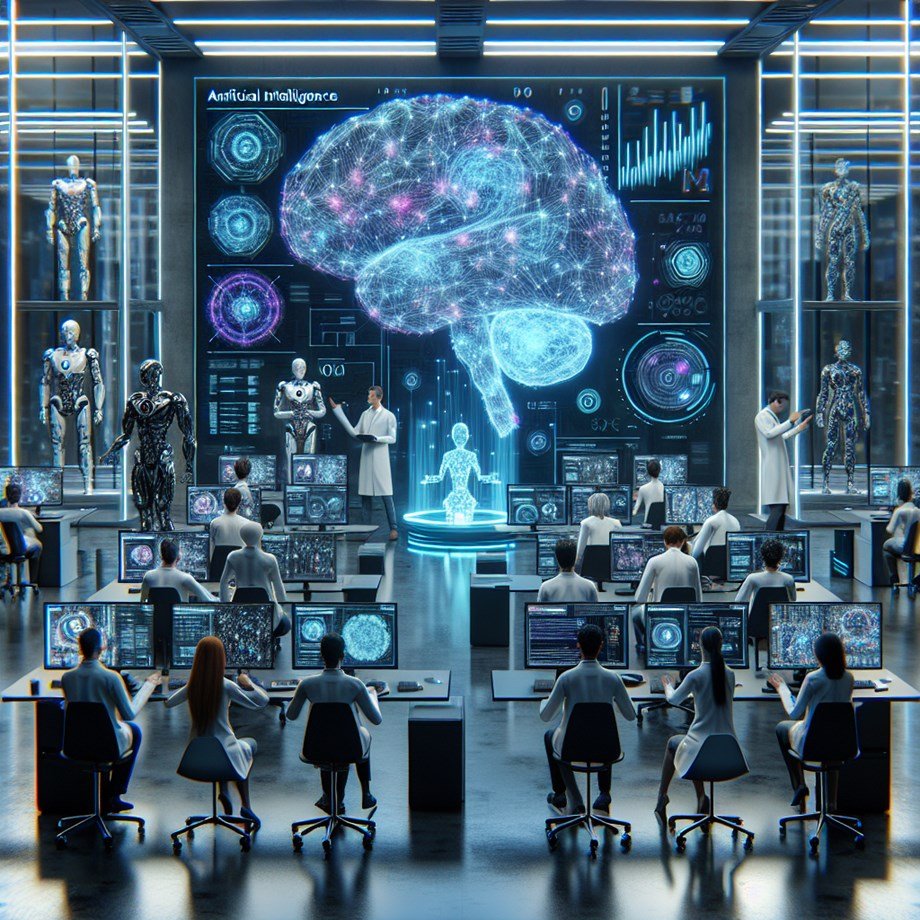Education
AI & Education: Tinubu’s Advice to Students

President Bola Tinubu has urged students not to abandon analytical thinking because of the growing use of artificial intelligence.
Tinubu also advised students to apply themselves to learning when he visited the Sir Arthur Lewis Community College in Morne Fortune, Castries, on Tuesday.
The visit marks the fourth day of his State Visit to Saint Lucia.
He engaged with faculty, staff, and students of the institution named after Sir Arthur Lewis, the 1979 Nobel Laureate in Economic Sciences.
Special Adviser to the President on Information and Strategy, Mr Bayo Onanuga, revealed excerpts of the proceedings in a statement signed Tuesday titled ‘President Tinubu To Saint Lucian Students: Education Is Your Greatest Tool; Be Bold, Disciplined, And Committed’.
He said, “Don’t depend on AI technology to find you the solution. Go through like a recipe in the kitchen, one after the other.
“Then you solve the problem. Once you solve the problem, you see satisfaction in yourself and pride in achievement.”
The President reaffirmed Nigeria’s commitment to deepening collaboration with Saint Lucia in education, culture, and technology.
He also urged students to show commitment and discipline in their educational pursuit, saying it is their greatest tool for advancement.
Addressing the gathering, Tinubu described the student community as vital to building a stronger Afro-Caribbean future.
He announced a cultural exchange opportunity for the college’s performing arts group following a stage performance of The Drum Maker, based on the work of Saint Lucian playwright Kendel Hippolyte.
“I offer a trip—at their convenience—for the performing arts group to come and mix with the talents that we have in Nigeria,” Tinubu said.
He also clarified that the invitation is independent of the tuition-free scholarship programme for students from the Organisation of Eastern Caribbean States.
Acknowledging education as the most effective weapon against poverty, the President encouraged students to be bold, consistent, and disciplined in their pursuit of knowledge.
“Nothing like education can fight poverty. If anybody tells you that education is not crucial, ask the person to try ignorance,” he said.
He stressed the importance of time management, perseverance, and critical thinking: “What you get out of this college is your own that you can use to achieve anything in life. Just be determined, consistent, and bold. Be intellectually inquisitive.”
Highlighting the deep historical and cultural links between Africa and the Caribbean, the President reaffirmed Nigeria’s commitment to Afrocentric policies and South-South cooperation.
“I believe Nigeria will collaborate with Saint Lucia to make a difference in the lives of our Black race. In our national anthem, we pledge to hand over a banner without stain to the generation that comes after us. We will give you that banner if you work hard, honestly, and consistently,” he affirmed.
Saint Lucia’s Minister for Education, Sustainable Development, Innovation, Science, Technology and Vocational Training, Edward Shadrack, described the President’s visit as a powerful testament to the enduring ties between Africa and the Caribbean.
“Your presence here today is a powerful testament to the enduring bonds between Africa and the Caribbean—ties deeply rooted in shared history, culture, and aspirations,” the Minister said.
“Today’s gathering symbolises more than a diplomatic visit. It reflects our shared belief in the power of education to bridge continents, build partnerships, and shape a more connected and empowered world,” Shadrack added.
Meanwhile, Chairman of the college’s board of governors, Mr. Cletus Springer, called for a robust partnership between the College and Nigerian universities and polytechnics in student and faculty exchange, joint research, digital innovation, and strengthening technical and vocational education.
On behalf of the Board and college community, Springer thanked President Tinubu for announcing scholarships for OECS students to study in Nigeria.
“We are excited about our students learning alongside their Nigerian peers. This is the surest way for our respective peoples to build networks that cross oceans but remain rooted in our shared African-Caribbean identity,” he said.
He also applauded the President’s decision to engage directly with the academic community.
“Your presence here today is deeply inspiring. We are touched that, among the many options you had for your official visit, you prioritised spending time with us—especially with our students, 25 of whom are here today and the countless others watching online,” said Tinubu.
Reflecting on the legacy of Sir Arthur Lewis and Sir Darnley Alexander, the former Chief Justice of Nigeria, both of whom were of Saint Lucian descent, Springer highlighted the intellectual and historical connections that bind Saint Lucia and Nigeria.
“Their lives inspire today’s leaders and institutions—such as our own Sir Arthur Lewis Community College and Nigerian universities—to reignite intellectual, educational, and cultural collaboration in pursuit of shared development goals,” Tinubu noted.
Speaking on behalf of the student body, President of the Students’ Council at SALCC, Naeem Philbert, described President Tinubu’s visit as a moment of reconnection between Africa and its diaspora.
“Today is not just about diplomatic formality—it is a quiet yet powerful affirmation that we have not forgotten one another,” Philbert said.
“Though our stories have been written on different ocean sides, they remain deeply connected. For many of us in Saint Lucia, Nigeria is not a foreign country. It is family. Its music, literature, and legacy live with us,” he added.
Philbert also expressed heartfelt appreciation for the scholarship initiative, saying, “Your Excellency, your generosity in offering these opportunities speaks volumes. We look forward to building lasting bridges—student to student, story to story. This visit brings with it not only the weight of legacy but the promise of possibility for youth like us,” he added.
The Minister of Art, Culture and Creative Economy, Hannatu Musa Musawa; Minister of Environment, Balarabe Lawal; Director-General of the Nigerian Technical Aid Corps, Hon. Yusuf Yakub; and the Chairman/CEO of the Nigerians in Diaspora Commission, Hon. Abike Dabiri-Erewa, accompanied the President on the visit to the school.
Before departing the college, Tinubu paid his respects at Sir Arthur Lewis’s gravesite in the school compound.
Education
Reimagining Writing in the Age of AI: Challenges and Opportunities for Universities

As a new academic year begins, educators find themselves grappling with the implications of large language models (LLMs) on learning and writing. The technology, which can generate text resembling academic English, raises questions about authorship and the cognitive demands of writing.
Historically, universities have treated writing as an indicator of intelligence, focusing heavily on correctness. However, this perspective overlooks writing’s true purpose as a means for students to develop and articulate ideas. Critics argue that without adapting teaching methods, students risk becoming dependent on AI and disconnected from their own creative capacities.
Experts propose redefining writing assignments, allowing students to submit works-in-progress, and integrating feedback into the learning process. This shift aims to promote originality and critical thinking. Failure to engage writing scholars in AI policy could result in students producing output that mirrors established norms rather than exploring new intellectual territories.
Education
70% of American high schoolers doubt the future value of what they are learning: Will AI make today’s classrooms obsolete?

American classrooms are facing an unprecedented crisis of confidence. According to Discovery Education’s Education Insights 2025–26 report, a striking 70% of high school students believe the skills they’re learning today will soon be replaced by artificial intelligence (AI). This growing skepticism is forcing educators and policymakers to confront unsettling questions: What is the real value of classroom learning in a world increasingly dominated by machines? And how can schools remain relevant when students themselves doubt the future of their education?
Smartphones: The omnipresent distraction
Even before AI entered the picture, technology had already reshaped learning. The Education Insights 2025–26 report, alongside other national surveys, reveals that 97% of high school students use their phones during the school day, with 60% admitting to regular in-class use. Teachers are paying the price: more than 70% say cellphones are a major distraction, undermining focus and performance.Despite widespread school policies restricting phone use—55% of high schools now enforce bans—six in ten teachers say enforcement is ineffective, and nearly half believe that unchecked phone use is harming academic outcomes. Students, meanwhile, continue to use social media apps like TikTok and YouTube during class hours, cutting into participation and in-person interaction.
Artificial Intelligence: Tool or threat?
AI has added a new layer of complexity to the digital classroom. Discovery Education’s findings show that 40% of students admit to using AI for assignments without permission, while 65% of teachers report catching students doing so. With clear policies still lacking, the line between innovation and academic dishonesty has blurred.Yet, students are not entirely cynical. The same report shows that two-thirds of high schoolers believe AI can help them learn faster, and nearly three-quarters have already been allowed to use AI in at least some schoolwork. School leaders are even more optimistic: over 90% of superintendents and principals express enthusiasm about AI’s potential, though only half of teachers share that optimism. Concerns about plagiarism, distraction, and the absence of training weigh heavily on educators.
Existential doubts in the classroom
The 70% figure stands out as perhaps the most alarming finding from the Education Insights 2025–26 report. Students are increasingly convinced that traditional academic skills will not survive the AI revolution. This perception risks deepening disengagement, as teens question whether their time in classrooms is preparing them for meaningful futures.Teachers, meanwhile, are left navigating what knowledge remains essential when algorithms can write essays, solve equations, and generate ideas faster than humans. The fundamental role of schools—as places to impart lasting skills and knowledge—is suddenly under debate.
Policy gaps and uneven responses
Schools are experimenting with responses, from “cellphone hotel” drop-off policies to state-level bans on TikTok across school networks. Some districts are even lobbying social media platforms over their role in harming student mental health. But enforcement remains uneven, and students’ tech-savvy often outpaces school restrictions.AI integration policies are even less developed. While leaders push for innovation, teachers frequently feel underprepared and unsupported. The Education Insights 2025–26 report highlights this gap: enthusiasm at the administrative level has not translated into clear classroom strategies.
The crossroads ahead
The Discovery Education report makes clear that technology is not going away. When used intentionally, digital tools can enhance learning, foster collaboration, and build digital literacy. Many educators report higher engagement when technology is directly tied to instruction. But without urgent and thoughtful strategies, the double-edged sword of smartphones and AI risks deepening distraction, fueling distrust in education, and widening the gap between students’ expectations and schools’ offerings.The ultimate question remains: If most students already believe AI will replace what they are learning, can today’s classrooms adapt fast enough to prove them wrong?
Education
Trump admin illegally froze Harvard funds, Judge says : NPR

Students walk up the steps of the Harry Elkins Widener Memorial Library on the campus of Harvard University.
Elissa Nadworny/NPR
hide caption
toggle caption
Elissa Nadworny/NPR
A federal judge in Boston handed Harvard University a legal victory on Wednesday. It’s the latest in a high-profile legal fight over whether the Trump administration acted illegally when it froze more than $2.2 billion in Harvard research funding in response to allegations of campus antisemitism.
In her ruling, Judge Allison D. Burroughs said the administration’s funding freeze was issued without considering any of the steps Harvard had already taken to address the issue.
Burroughs said she found it “difficult to conclude anything other than that [the Trump administration] used antisemitism as a smokescreen for a targeted, ideologically-motivated assault on this country’s premier universities, and did so in a way that runs afoul of [federal law].”
White House spokesperson Liz Huston said after the ruling: “We will immediately move to appeal this egregious decision, and we are confident we will ultimately prevail in our efforts to hold Harvard accountable.”
The more than $2 billion in federal funding that the administration had frozen supported more than 900 research projects at Harvard and its affiliates. That includes research into the treatment and/or prevention of Alzheimer’s, various cancers, heart disease, Lou Gehrig’s disease and autism. Burroughs also highlighted a program through the Department of Veterans Affairs “to help V.A. emergency room physicians decide whether suicidal veterans should be hospitalized.”
The case has been the subject of intense focus as Harvard has stood largely alone in pushing back against the Trump administration’s efforts to use funding cuts as leverage to win vast ideological and financial concessions from other elite institutions, including Columbia and Brown University.
In a July hearing, a lawyer for the Trump administration said Harvard’s funding had been frozen because the school had violated Title VI of the Civil Rights Act, which prohibits discrimination based on race, color and national origin, by failing to address antisemitism on campus.
But Burroughs ruled that it was the administration that had run afoul of Title VI by quickly freezing funding without first following a process clearly laid out in law.
Harvard’s attorneys had argued that the cuts imposed by the Trump Administration threatened vital research in medicine, science and technology.
Burroughs wrote in her decision that, “research that has been frozen could save lives, money, or the environment, to name a few. And the research was frozen without any sort of investigation into whether particular labs were engaging in antisemitic behavior, were employing Jews, were run by Jewish scientists, or were investigating issues or diseases particularly pertinent to Jews (such as, for example, Tay-Sachs disease), meaning that the funding freezes could and likely will harm the very people Defendants professed to be protecting.”
Burroughs underlined that antisemitism is intolerable, and criticized Harvard, saying it “has been plagued by antisemitism in recent years and could (and should) have done a better job of dealing with the issue.” But, the judge concluded, “there is, in reality, little connection between the research affected by the grant terminations and antisemitism.”
President Trump has previously been outspoken in his criticism of Burroughs, writing on Truth Social earlier this year that she is a “Trump-hating Judge,” and “a TOTAL DISASTER.”
Following Wednesday’s ruling, White House spokesperson Liz Huston again criticized Burroughs and said “It is clear that Harvard University failed to protect their students from harassment and allowed discrimination to plague their campus for years. Harvard does not have a constitutional right to taxpayer dollars and remains ineligible for grants in the future.”
“This ruling is huge. It is a big, decisive victory for academic freedom,” said Harvard history professor Kirsten Weld, who is also president of the Harvard chapter of the American Association of University Professors, which was a plaintiff in the lawsuit.
Even though the White House plans to appeal, Weld says she hopes this ruling sends the message “that you cannot break universities in this fashion and that it is worth standing up and fighting back.”
-

 Business6 days ago
Business6 days agoThe Guardian view on Trump and the Fed: independence is no substitute for accountability | Editorial
-
Tools & Platforms3 weeks ago
Building Trust in Military AI Starts with Opening the Black Box – War on the Rocks
-

 Ethics & Policy1 month ago
Ethics & Policy1 month agoSDAIA Supports Saudi Arabia’s Leadership in Shaping Global AI Ethics, Policy, and Research – وكالة الأنباء السعودية
-

 Events & Conferences4 months ago
Events & Conferences4 months agoJourney to 1000 models: Scaling Instagram’s recommendation system
-

 Jobs & Careers2 months ago
Jobs & Careers2 months agoMumbai-based Perplexity Alternative Has 60k+ Users Without Funding
-

 Education2 months ago
Education2 months agoVEX Robotics launches AI-powered classroom robotics system
-

 Funding & Business2 months ago
Funding & Business2 months agoKayak and Expedia race to build AI travel agents that turn social posts into itineraries
-

 Podcasts & Talks2 months ago
Podcasts & Talks2 months agoHappy 4th of July! 🎆 Made with Veo 3 in Gemini
-

 Podcasts & Talks2 months ago
Podcasts & Talks2 months agoOpenAI 🤝 @teamganassi
-

 Education2 months ago
Education2 months agoAERDF highlights the latest PreK-12 discoveries and inventions



















